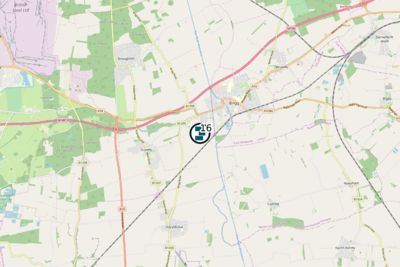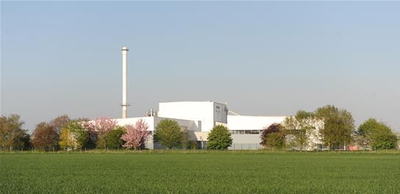Brigg REP
| Error: no local variable "site" has been set. Error: no local variable "status" has been set. | |
 See Biomass EfW → page for a larger UK Wide map. | |
| Operator | Error: no local variable "operator" has been set. |
| Capacity | Error: no local variable "capacity" has been set. MWe |
| Feedstock | Error: no local variable "mainfeed" has been set. |
| EPR (Waste Licence) | Error: no local variable "epr" has been set. |
| ROC | Error: no local variable "roc" has been set. |
| CfD | Error: no local variable "cfdcap" has been set. |
| CHP | Error: no local variable "chp" has been set. |
Operators Annual Report
Input Data
| Year | Wood | Litter | RDF | Other | Total |
|---|
Output Data
| Year | IBA | IBA %ge of Tot IN | APC | APC %ge of Tot IN |
|---|

Summary
A Biomass Waste EFW facility processing up to 250,000 tonnes per year of a range of Biomass, but primarily straw and a limited amount of Wood Waste to generate up to 40MWe for export to the national gridCite error: Closing </ref> missing for <ref> tag. The plant consumes up to 300,000 tonnes per year of material, of which around 80,000 tonnes is Wood Waste supplied by UK Waste Wood Recycling, a subsidiary of Enva, from a nearby separate site.
The Wilton 10 facility was developed by Sembcorp Energy UK and was operational in the autumn of 2007 and at the time was the first large scale biomass power station to be built. It is located in Teeside on the Wilton International Industrial Estate and is discrete from Wilton 11 which is a Residual Waste EFW project.
Plant
Built under an EPC contract with Burmeister & Wain Scandinavian Contractor A/S (BWSC), construction commenced in early 2014 and commissioning and first power was delivered at the end of 2015 and formal opening in January 2016. who also operate the plant Foster wheeler for a reported $55m (excluding the turbine and power island supplied by Siemens), the standard combustion technology is based on a fluidised bed system.
Tonnage Input/Fuel
The tonnage received by the plant is a mixture of Biomass and in the most recent Annual Sustainability Report for 2018-19[1] Ofgem reported the following fuel received (Wood Waste representing 8% of input):
| Biomass | Tonnage (2018-19) |
|---|---|
| Wood Waste | 15,239 |
| Straw | 132,339 |
| Miscanthus | 23,755 |
| Sawmill Residues | 2,308 |
| Arboriculture and Forestry Residues | 19,638 |
| Short Rotation Coppice | 3,835 |
| Other (Olive Pellets) | 4,968 |
| Total | 202,082 |
The Wood Waste tonnage received cannot be directly compared with the stated historical tonnage received and recorded in the EA statistics as these are recorded on a calendar year basis (i.e. January 2018 to December 2018) and no figures were available for the period.
